This summer, Penguin will publish Ciaran Thapar’s debut book about youth violence, Cut Short. Novel Studio course director, Emily Pedder, caught up with him to find out more about his path to publication and the book David Lammy has described as ‘honest, authentic and raw’.
Emily Pedder: Your book, Cut Short, is an urgent look at the UK’s serious youth violence epidemic. What first drew you to this subject?
Ciaran Thapar: As an education and youth worker in schools and youth clubs in London between 2015-2018, I came to see how youth violence was playing out on the ground as an overwhelming force in the lives of young people I was working with. I therefore noticed that the myopic, if-it-bleeds-it-leads way the British media were reporting on fatal stabbings across London and beyond was not only detached: it was actively harming communities who were suffering most by telling stories that distorted, rather than informed, wider society’s understandings about social breakdown. So, moved by my interest in writing and journalism, I started to write about issues which I saw as orbiting the violence: austerity, school exclusions, drill music.
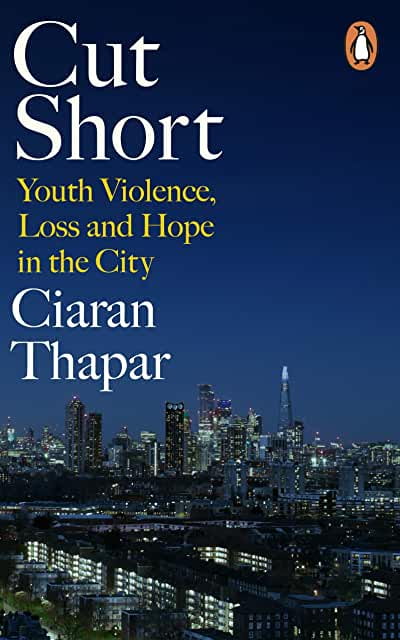
Ciaran Thapar’s debut, Cut Short
What’s more, 17-year-old Michael Jonas, the older brother of my first mentee, Jhemar Jonas – who I first started working with in January 2015 when I was a postgraduate student at LSE – was stabbed to death in November 2017. Quite suddenly I was required to become a consistent source of support for Jhemar and his family. It made me double down on trying to understand and solve why violence happens among young people. The book was primarily borne out of this motivation.
And then, in the hot summer of 2018, with London simultaneously celebrating the weather on the one hand while becoming weighed down by unprecedented death and tragedy on the other – divided by lines of race, class and postcode – I started writing my proposal. Cut Short’s creation is therefore moved by my practical journey as a youth worker learning the ropes, seeking to make impact and forging empathy with young people, as well as my intellectual attempts to understand these last few years in British society, map out how we are all connected and responsible for civic unity, and provide a hopeful blueprint for steps forward.
EP: You’re a youth worker and a journalist. How easy was it to make the transition to writing a book?
CT: The researching, interviewing, planning and structuring of stories I wanted to include in the book between the summers of 2018 and 2020 – the start of the proposal to the end of the first draft – was never easy, but it was manageable. I went freelance in May 2018 after working for six months in London prisons, and for a while I was struggling to make ends meet financially. Dealing with the stress of that time was very difficult. But pressure makes diamonds: I wrote so much journalism to stay afloat as a result that I became more confident in my arguments and observations about themes I was seeing firsthand in my youth work: social exclusion, inequality, austerity and music culture. I have long been interested in writing long form journalism – I rarely read anything else – so in the end, on realising the book idea’s potential, it felt more natural to switch from writing lots of shorter pieces to focus and go long for the book.
The bit of the transition I found truly hard, however, is the impact it had on me psychologically. It is, I think, impossible to fully immerse oneself in a book-length project while sustaining other areas of life with any normality. I am very proud of the jump I made from youth work and journalism to the book, and what I’ve created in the end. But it has been difficult juggling everything. I’ve skated very close to burnout. Fortunately, my writing practice is now more patient and protected than it ever was before. I compartmentalise it on certain days and protect it to focused sessions, rather than letting it affect my youth work or personal life.
So, in sum: it wasn’t difficult to make the transition to writing a book, and it has enriched my life beyond belief. I’ve learned a huge amount and built a platform that will, I hope, allow me to advocate for change going forward. But, as with anything sustainable and meaningful, the transition came with obstacles and burdens that I’m only really starting to make sense of now. I feel a responsibility to say that here.
EP: What are the most important lessons you have learned in writing your book?
CT: First, you can’t rush or force quality, and when things don’t go to plan, it’s okay, because they’re not meant to. I became so stressed at first when interviews fell through or huge distracting events happened in my youth work in the process of writing the book. But I soon realised that these developments are a

Ciaran Thapar (photo by Tristan Bejawn)
prerequisite for anyone trying to craft a nonfiction story. Real life is not predictable, and it moves in imperfect directions, so writing a book that grapples with that truth will never go exactly to plan. I’ve learned to see this as an exciting and rewarding truism, and be grateful for it, rather than worry too much about stuff I can’t control.
A second lesson I’ve learned is that, compared to writing a piece of journalism, a book requires long-term immersion. It necessarily becomes a big, the biggest, part of your life. Giving it space, switching on and off from it, finding modes of self-care and people who you can be vulnerable with to support you, is the best way to keep in check. I feel like now that I’ve written a book, my writing practice is totally transformed for the better, and I’ll have that for the rest of my life.
CT: I’ve not done any other writing courses, per se, but I think it’s important to credit the MSc Political Theory I did at LSE between 2014-2015 as an essential step for my career. It gave me the ability to consume and form strong moral arguments quickly. Ultimately, Cut Short amounts to a grand moral argument about the vitality of the state, civic participation and public responsibility. I make a case for compassion and empathy in spaces like schools and criminal justice where, as far as I can tell, these values are being systematically rooted out, often in the name of profit. Academic study gave me the critical thinking and language skills to forge this as a binding ideology. Peter’s course two years later then made me appreciate nonfiction writing as a creative craft in which every word counts. So then it became about making arguments and political advocacy fun, listenable, readable and colourful. The course also created the weekly pattern in my life of sharing my words with a group and getting feedback; it built my confidence. Without that pattern I think I would have struggled to put myself out there in the way I eventually did.
EP: What’s the most helpful piece of advice anyone has given you as a writer?
CT: Writing is like dancing: it’s best when nobody’s looking. I’ve heard these words spoken by the former Guardian journalist
Gary Younge – who features in
Cut Short! – a few times, and it really rings true now that I think about it more and more. Having a target audience and being self-conscious is to some extent important to guarantee quality and think about an aim for a piece of writing. But too much focus on who is reading your words, or how that makes you feel, can distract from the task of speaking truth.
EP: What advice would you give to someone starting out on their writing journey?
CT: Being a good writer is only partially anything to do with the actual writing: it’s also about being an adaptable, humble human being; someone who is willing to listen, learn and observe. Before you put pen to paper, create patterns in your life which give you freedom to think and be inspired. If you’ve got nothing to write about, then it doesn’t matter how good your language skills are: the words won’t flow. So focus on acting as well as writing. And then write every day in a journal. Once you’re ready to get your writing into the public domain, reach out to as many editors and writers as possible, offer coffees, ask for phone calls. Make yourself memorable. Pitch regularly, and if a pitch isn’t accepted, ask for feedback, embrace the learning, and take the opportunity to improve. Never see failed pitches as failures. (Some of my most successful articles were the result of failed pitches; Cut Short was the result of many!) And finally, stick to writing about things that you know intimately because everyone has a story worth telling and a perspective worth sharing, it’s just a matter of putting in your 10,000 hours trying to figure out how to articulate it. The only way to fail is by giving up, so don’t give up.
EP: Can you describe your route to publication?
CT: I was emailed by my legendary agent,
Matt Turner, in the summer of 2018 after he’d read some of my pieces. We met at a pub in Brixton and he asked if I had a book idea. I didn’t, but the conversation, stretched over several meetings, quickly turned to my experiences as a youth worker and my aspirations to write something long form that could make a real impact on how youth violence is understood in British society. I was and still am surrounded by characters who are heroic and deeply inspiring, and I felt like their stories needed to be told in a book.
From that moment onwards, I spent 10 months struggling to write the proposal. Really struggling. But despite the delays, Matt stuck by me, editing whatever I sent him, sometimes binning it altogether and telling me to start again, and building my profile in his industry network. He didn’t need to remain loyal like this, or wait for me to get my act together, but he did, and for that I will be forever grateful. His supporting role was perfectly executed. So by the time we submitted the proposal in June 2019 – it took tens of draft attempts, many sleepless nights and many, many instances in which I thought I might just give up – we had a willing audience of editors ready and waiting to read the idea for Cut Short. In the end, I was pleased to gain 9 offers from publishers, and I chose Penguin Viking because I could see how passionate their team were about converting my ideas into a reality.
Then in August 2019 I got to work, slowly at first, and I was roughly halfway through writing the first draft in March 2020 when lockdown hit. I wrote the second half in lockdown, between March-July 2020, which was bizarre, but I think it worked well as I could pour all my time and energy into it. The book gave me a sense of purpose that I may have otherwise lacked during such a disruptive period for the world.
Since then, the book has gone through 10+ editing and proofreading stages, I’ve had to have many, many conversations with my editor, contributors, advisers and friends about the ethics and safeguarding of the story. I’ve worked with the main characters – particularly Jhemar and another young legend called Demetri Addison, who I used to mentor at his sixth form college – to make sure they are totally happy with how it all reads and represents them. And now I’m trying to enjoy the calm before the storm of publication in June. It’s very surreal getting feedback from early readers. I’m ultimately nervous and excited in equal measure.
EP: How will you celebrate the launch of your book if we are still in lockdown when it’s published?!
CT: The book comes out on 24th June, three days after lockdown is supposed to end. My 30th birthday is one week later. It’s going to be a special summer.
EP: What do you hope readers will take away from your book?
CT: Two things, which I state early in the book: an understanding of some of the problems which lead to youth violence, and a practical blueprint of some solutions.
Regarding the problems, I’ve chosen to focus on presenting and evidencing an argument which says that the British state is failing particular groups of young people, and this is why youth violence occurs. Austerity is to blame, but so is technological change and systemic discrimination in our public institutions, going back generations.
Regarding the solutions, I’ve tried to show through the stories I tell and analysis I present how we are all connected, if subtly, to serious youth violence, and therefore how we might think and act differently in future to collectively solve it. I want readers to connect with the story, understand these arguments, feel something and then act on that feeling; adults to care, young people to feel platformed and inspired. Cut Short is a call to action. It is not just a book, it is my way of making change and turning the armchair thinker into a frontline doer.
EP: What are you working on now?
CT: I run my own charity,
RoadWorks, which I launch at the end of
Cut Short. We explore music culture and social theory to support young people at risk of exclusion and violence. I also now write consistently for British
GQ – I have a monthly column about youth and music culture online called ‘All City’ – and I’m working on one special long form piece for the print magazine this summer which I’m excited about. Otherwise, I’m doing more work behind the scenes on making sure the book’s publicity and promotion is where I want it to be. Watch this space!
Congratulations, Ciaran! We can’t wait for the book to come out.


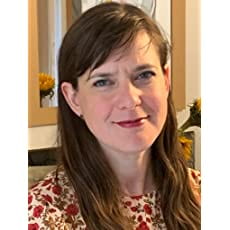
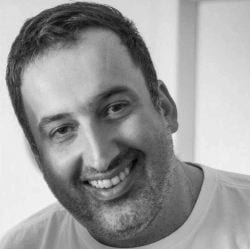






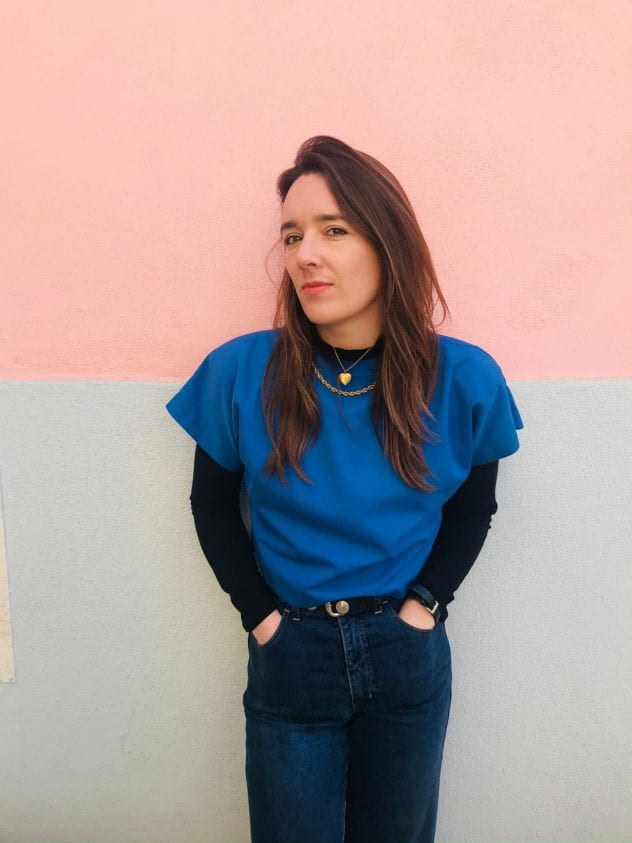
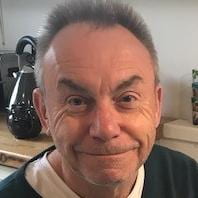
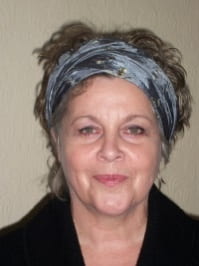







Recent Comments